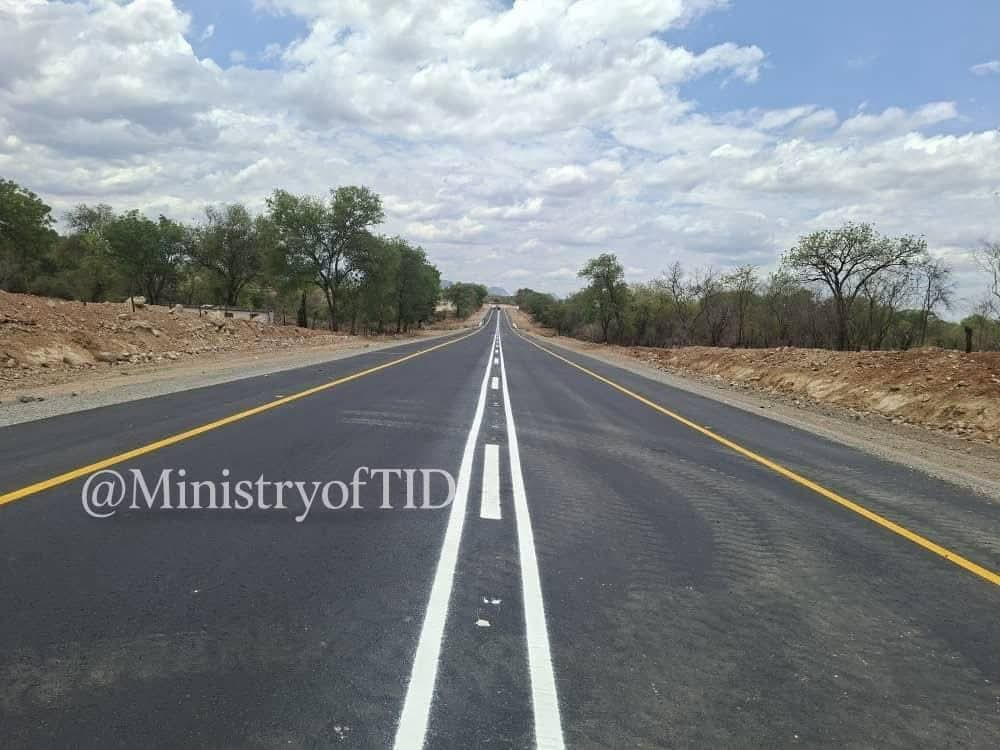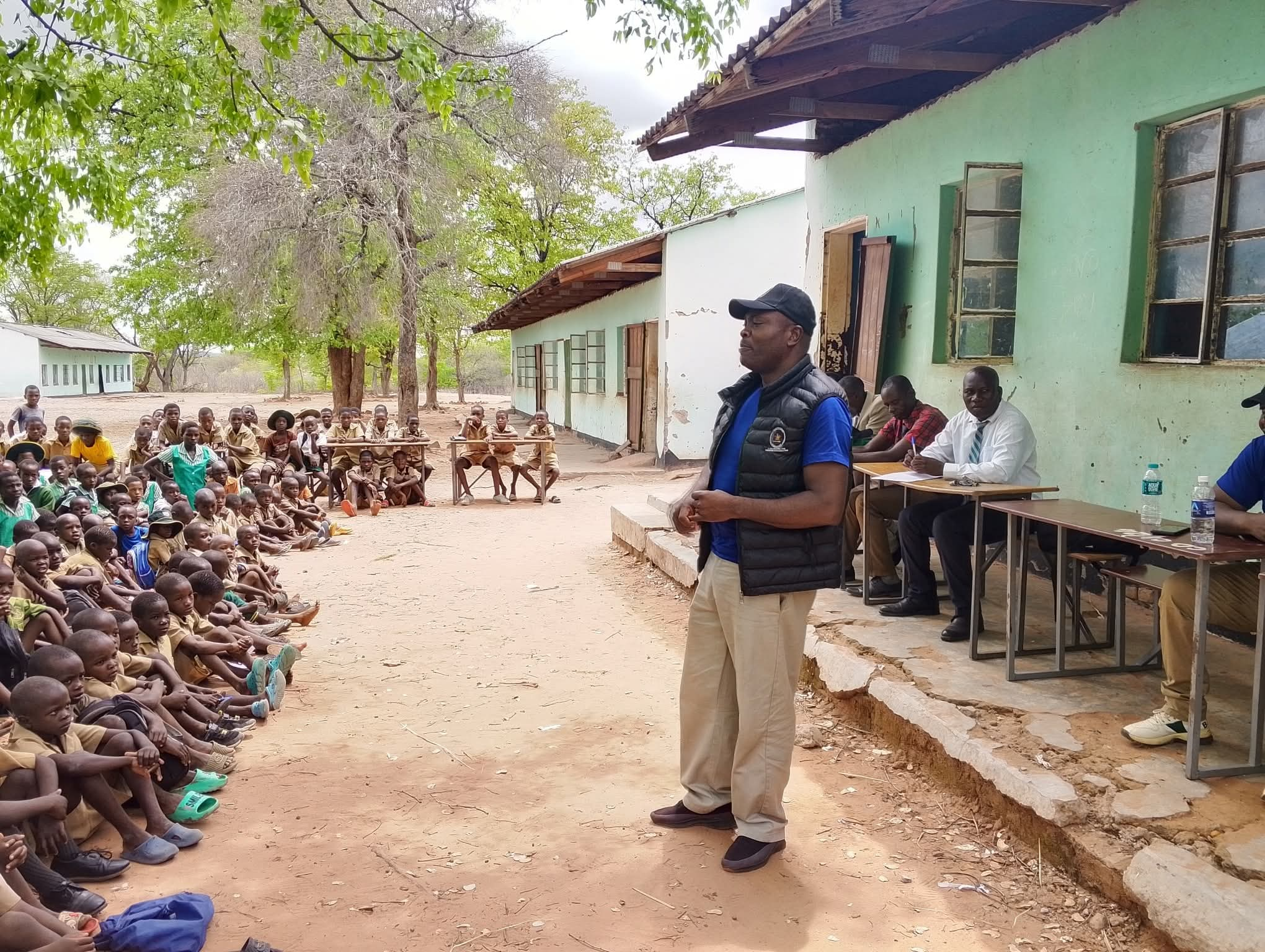Current Affairs
Harare-Beitbridge Road Nears Finish Line

Authorities say the long-running rehabilitation of the Harare–Beitbridge Highway is finally nearing completion, with just 53.2km still outstanding on the 585km stretch.
In an update this week, the Ministry of Transport and Infrastructural Development confirmed that a newly upgraded 3km four-lane section at Ngundu has now been opened to traffic. The latest addition brings the total amount of completed road to 528.8km, a development the ministry described as a “major milestone” signalling that the project has entered its “home stretch”.
The Harare–Beitbridge route is one of southern Africa’s most critical commercial arteries, linking Zimbabwe with South Africa and carrying thousands of tonnes of freight every week. Any progress on the corridor is therefore widely welcomed by transporters, motorists and businesses dependent on uninterrupted regional trade.
However, despite the positive update, questions remain over the pace of the remaining works. Many Zimbabweans have expressed frustration at the slow finish, noting that the rehabilitation project has stretched far longer than initially anticipated.
Actual construction began in 2019 after preliminary works were undertaken in late 2018. Since then, progress has been gradual, delivered in small segments over several years. While authorities maintain that the final stages are underway, current timelines indicate that the remaining portion of the road will only be completed in early 2026 — almost seven years after the project started.
For now, officials insist the last kilometres are in sight. For road users, the hope is that the final stretch will not take as long as the journey so far.
Current Affairs
Apostolic Church Founder Paul Mwazha Dies at 107

Zimbabwe and the wider African Christian community are mourning the loss of Bishop Paul Mwazha, the revered founder of the Apostolic Church in Africa, who passed away today at the remarkable age of 107.
Bishop Mwazha, widely regarded as one of the continent’s most influential religious leaders, dedicated his life to the growth and spiritual guidance of his church, which boasts millions of followers across Zimbabwe and beyond. His teachings, rooted in faith, discipline, and community service, have left an enduring legacy that continues to shape generations.
The Apostolic Church in Africa under his leadership became a cornerstone of spiritual life in many communities, providing not only religious guidance but also social support and education initiatives. Church leaders have called for prayers as they prepare for national and regional mourning rituals.
Further details on funeral arrangements and memorial services are expected to be released in the coming days.
Business
Zimbabwe Bets Big on Biotech to Fuel Industrial Revolution


Dr. Eng. Willie Ganda
By Enia Dube
The Minister of Higher and Tertiary Education, Innovation, Science and Technology Development, Hon. Dr Fredrick Shava, has thrown his weight behind biotechnology as a key driver of the country’s industrialisation and modernisation agenda.
Speaking at the National Biotechnology Authority (NBA) Strategic Planning Workshop in Kadoma, Dr Shava urged the Authority to identify biotechnology-led opportunities that can boost national production and accelerate economic growth.
“Biotechnology serves as a key catalyst for NDS2 implementation, advancing inclusive economic growth, job creation, and sustainable industrial development,” Dr Shava said, emphasising the need to integrate biotechnology into national value chains to unlock a biotechnology-driven economy. He added that this would turn innovation into industry, knowledge into enterprise, and science into jobs.
The NBA has made notable progress in establishing a strong regulatory framework, promoting biotechnology research and commercialisation, and raising public awareness about the sector’s potential. The Authority has successfully commercialised products such as Mapfura wine and Cofsol cough syrup, and has several other biotechnology products in the pipeline.
Incoming NBA Board Chairperson, Professor Idah Sithole-Niang, echoed Dr Shava’s sentiments, emphasising that the Authority’s five-year strategic plan must meaningfully contribute to the attainment of Vision 2030. “This event marks a significant milestone in the Authority’s ongoing efforts to enhance the role of biotechnology in Zimbabwe’s socio-economic development,” she said.
The workshop aimed to realign priorities and resources in response to emerging technologies and global biotechnology trends, and develop a strategic roadmap to strengthen biotechnology as a key driver of Zimbabwe’s socio-economic transformation. The rapidly evolving global biotechnology landscape, including advancements in gene editing, bio-manufacturing, and climate-smart innovations, presents both new opportunities and challenges for Zimbabwe.
“We recognise the pressing need for an inclusive and forward-looking strategic plan that can navigate the complexities of the biotechnology landscape,” Professor Sithole-Niang noted. The workshop was attended by researchers, government officials, and NBA staff, who are optimistic about the potential of biotechnology to drive Zimbabwe’s economic transformation and achieve Vision 2030.
Current Affairs
Parliament Outreach Programme Ignites Civic Enthusiasm in Kariba Schools

Pupils and teachers in rural Kariba were treated to an energetic and enlightening experience this week as Team B of Parliament’s public education outreach programme visited several local schools. Mayovhe Primary and Secondary Schools, Kauzhumba Primary, and Matau Primary School in Zvipani welcomed the team with palpable excitement, eager to engage with lessons on governance and civic responsibility.
During the visits, students actively participated in interactive sessions that highlighted the workings of Parliament and the broader structures of national governance. Teachers also joined the discussions, gaining fresh insights on integrating civic education into their classrooms. Correct answers to questions were rewarded with prizes, adding an element of fun and recognition to the learning experience.
“The learners were over the moon to share their knowledge about their heritage studies and were captivated by the legislative lessons,” said a member of the Hurungwe District Parliament outreach team, who visited Matau Primary School on the ninth day of the tour.
The programme went beyond conventional teaching; it inspired students to see themselves as future contributors to Zimbabwe’s democratic journey. Educators left the sessions energized and motivated to nurture leadership, responsibility, and active citizenship among their pupils.
As Team B continues its outreach across Kariba, the initiative underscores Parliament’s commitment to fostering an informed and engaged younger generation, planting seeds of civic awareness that could shape the country’s democratic future.
-

 Current Affairs1 week ago
Current Affairs1 week agoOperation restore order
-

 Crime and Courts2 months ago
Crime and Courts2 months agoMasasi High School Abuse Scandal Sparks Public Outcry
-

 Crime and Courts2 months ago
Crime and Courts2 months agoKuwadzana Man Jailed for Reckless Driving and Driving Without a Licence
-

 Current Affairs3 months ago
Current Affairs3 months agoMunhumutapa Day: Zimbabwe’s Newest Public Holiday Set for Annual Observance
-

 Current Affairs4 months ago
Current Affairs4 months agoBreaking: ZIMSEC June 2025 Exam Results Now Available Online
-

 Current Affairs1 month ago
Current Affairs1 month agoBREAKING NEWS: ZANU PF Director General Ezekiel Zabanyana Fired
-

 Current Affairs3 months ago
Current Affairs3 months agoGovernment Bans Tinted Car Windows in Nationwide Crime Crackdown
-

 Current Affairs2 months ago
Current Affairs2 months agoExposed: Harare GynecologistChirume Accused of Negligence, Extortion, and Abuse



